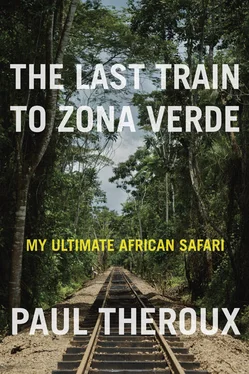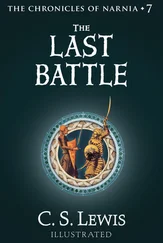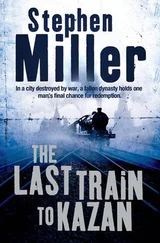It takes a certain specialist’s dedication to travel in squalid cities and fetid slums, among the utterly dependent poor, who have lost nearly all their traditions and most of their habitat. You need first of all the skill and the temperament of a proctologist. Such a person, deft in rectal exams, is as essential to medicine as any other specialist, yet it is only the resolute few who opt to examine the condition of the human body by staring solemnly — fitted out like spelunkers, with scopes and tubes and gloves — up its fundament and trawling through its intestines, making the grand colonic tour. Some travel has its parallels, and some travelers might fit the description as rectal specialists of topography, joylessly wandering the guts and entrails of the earth and reporting on their decrepitude. I am not one of them.
Forty years ago, when I planned my Great Railway Bazaar trip, I had considered taking the train from Turkey into Iraq, traveling south from Mosul to Baghdad and onward to Basra, where I would cross into Iran. “What’s Basra like?” I asked a friend who’d been there. “It’s not the asshole of the world,” he said, “it’s eighty miles up it.” So I went to Iran by a different route, and I have spent my traveling life avoiding such places. What had I learned? That proctology pretty much describes the experience of traveling from one African city to another, especially the horror cities of urbanized West Africa.
But the scientific inclination is not enough. Some artfulness is required. To chronicle this anguish, you need to be a traveler with a taste for ruins, someone who takes pleasure in them, as Giambattista Piranesi (1720–1778) did in eighteenth-century Rome. He was the inspired artist whose wayward brilliance lay in depicting the cracked remains of an ancient civilization, meticulous etchings of ruination, down to the last decayed detail. His dark etchings of crumbled, toppled-over, and scattered Rome were sold as souvenirs for visitors to the city. Travelers at the time, making the Grand Tour — English aristocrats, and writers such as Smollett and Goethe — seized on them, because Piranesi had found a way of bringing a vision of lost glory, even of splendor, to these scenes of antique devastation.
That was what was needed, proctologist and Piranesi, science and art — a strong stomach and a fascination with decay, and disorder, and hopelessness, and township anarchy.
There is something constricting and claustrophobic about the traveler’s being limited to cloacal ruins and urban dead ends. I had become a traveler to be free to wander, and on some of my most difficult trips I had felt liberated by the space and light. I have seldom been a traveler in cities. I have generally avoided them — all cities, not just in Africa, but also in Asia and Latin America. I am by nature a city hater, finding urban life nasty, hidden, and hard to penetrate. To me, even the greatest cities are places of loneliness and confinement where people are strangers to each other.
Why would I wish to travel through blight and disorder only to report on the same ugliness and misery? The blight is not peculiar to Africa. The squalid slum in Luanda is not only identical to the squalid slum in Cape Town and Jo’burg and Nairobi; they all greatly resemble, in their desperation, their counterparts in the rest of the world. A squatter camp in California is in every detail a duplication of a squatter camp in Africa, and worthy of close examination by a traveling writer for that reason. But I am not that writer, neither so committed to discomfort nor so noble-hearted.
The earth is becoming intensely citified. “The megacity will be at the heart of twenty-first-century geography,” Robert D. Kaplan writes in The Revenge of Geography . But the world I grew up in was not a world of big cities, and I began my traveling life hoping to find differences in landscapes and people, not repeated versions of the metropolitan experience. I don’t mock the effort. I am not equal to the task. The traveler in cities needs to understand cities better than I do and not be disgusted by their chronic deficits; that traveler needs to care more, to be more expert in some areas, more innocent in others, more hopeful. Anyway, the successful city dweller is gifted in coping with the horrors, the stalkers, the foul smells, the loud music, the casual rudeness, the foxy habits of taxi drivers, the absence of trees, the menacing faces, the noise, the squawk of voices — many of them screams; the rumble and whine that is unceasing — the night drone too, along with the nighttime light; the physicality of it all, especially the closeness of the crowds, the lack of elbow room, the daily experience of bumping against other people, which is a constant violation of your space and your body, the physical rubbing against strangers that amounts to frottage, known colloquially in New York as “subway grinding.”
That life is not for me, either to travel in or write about. It has nothing to do with my age. Now Africa is a continent of huge, unsustainable cities, and the majority of Africans are themselves city dwellers, having forfeited their poor villages for much poorer slums. It is impossible to travel overland in Africa by public transport — as I did from Cairo to Cape Town, and now from Cape Town to Luanda — and not make a circuit of the cities, awful places where there is nothing to learn except what you knew already from the worst neighborhoods of your own country.
One remedy for the revulsion in such travel is that of the French aphorist Nicolas Chamfort, who wrote, “Swallow a toad in the morning and you will encounter nothing more disgusting the rest of the day.” I have spent a life of travel sleeping in strange beds and dining on sinister food, and I have only mildly objected, because it is in the nature of travel to be uncomfortable, if not scared silly. But insult is another matter, and gratuitous insult is objectionable for being unrewarding. You can stay home and be insulted; you don’t need to go ten thousand miles to be jeered at. There is no revelation in being yelled at, heckled, cursed, or pestered, as began to happen with greater frequency on my trip. I think this harassment is the fate of many women traveling alone in male-dominated countries — most countries, that is — and I sympathize with women, usually burdened with a child or a backpack, for having to endure it.
It is undignified and tedious for anyone to have to battle his way onto a dirty bus. Yet I pitched in and found that pushing and being shoved and biffed by impatient oafs is not the worst of it. If, at the end of the journey, after nine or ten hours of travel on the miserable bus, with its piss stops and children with the squitters and chickens dying in baskets and shouting passengers and its inept driver — finally needing to elbow your way off the bus — if, then, the traveler sees nothing new, it is a pointless journey too, and no one would want to read about it. I found more and more, in these cheated places with diminished resources, that I had to fight for a seat, and I became less and less willing to do so. The single woman, the older traveler, the weak-looking or undersized stranger, the loner, the wanderer at night — all are taken for easy prey, and bullied or fleeced. The only lesson is: caveat viator , traveler beware, and perhaps ask again, “What am I doing here?”
My answer did not amount to a manifesto for staying home but rather an essay on other directions, since there are so many places on earth worthy of a traveler’s effort and more likely to evoke a traveler’s bliss. I am not too old for this, I am more patient than ever, but I am temperamentally unsuited to chronicling the gutter life of the African slum that necessitates my swallowing a toad every morning. There is nothing to write about it that I have not written already, and at length. Such places are transit camps filled with people who have been abandoned by their fattened and corrupt governments. Such places might, as Kalunga Lima predicted, one day explode in a blaze of fury, the spontaneous combustion of enraged, cheated people. I know enough of the score-settling and fickleness of uprisings to avoid them.
Читать дальше












